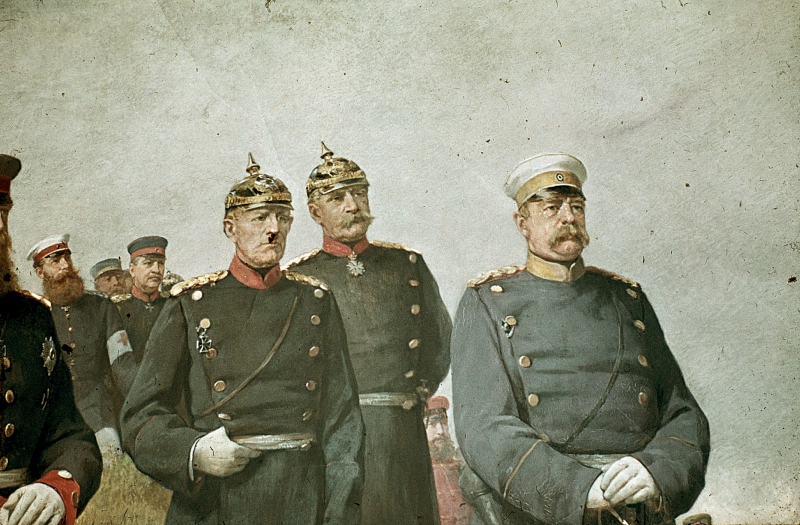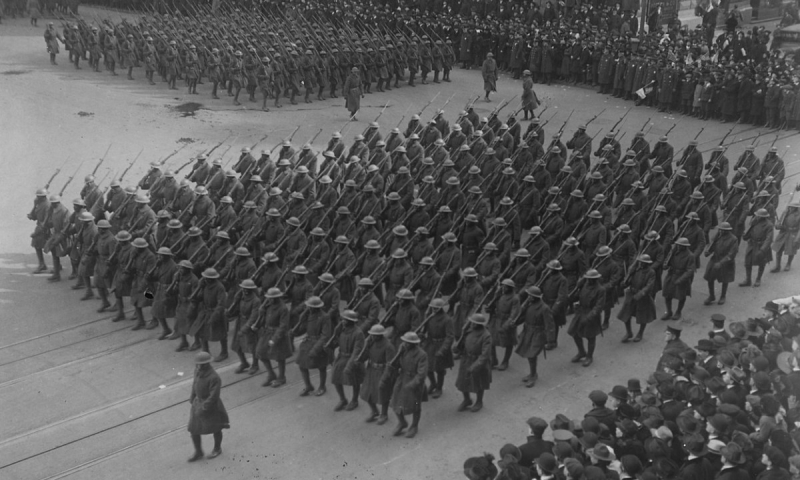Militarism

Militarism is defined as the notion that a country should maintain a strong military capability and be willing to use it forcefully to defend or advance its own national interests. Militarism was the philosophy that guided the ruling regimes of various European countries in the years leading up to the First World War. Military commanders in the country counseled politicians, influencing domestic policy and seeking increased defense and armaments spending. Though strength and military might have always been favored in human history, the ambition for domination, along with competitiveness, an unstable political situation, and a lack of trust, led to powers across Europe rapidly growing their armies, resulting in the "arms race".
Germany strove to construct a navy that might rival Britain's in the years leading up to the conflict, while Britain pushed to improve its forces to avoid this. Germany created mobilization techniques to quickly mobilize men for war. In addition, Russia, Germany, and France all trained many soldiers to serve as non-active military reserve forces. Furthermore, the massive expenditures in the arms race resulted in the advancement of military technology and the development of more lethal and destructive weapons.











